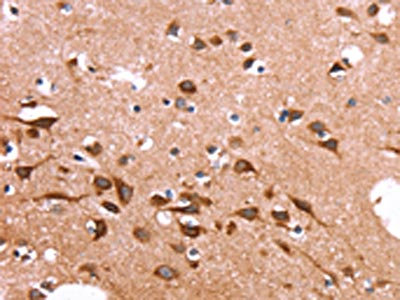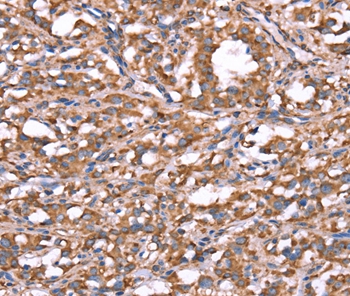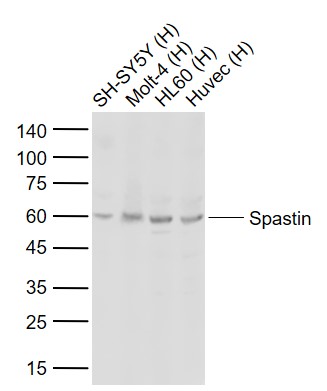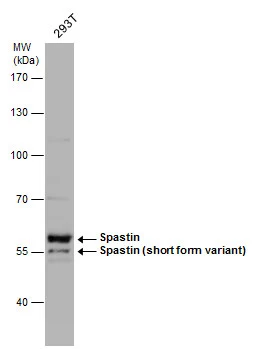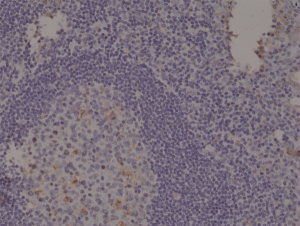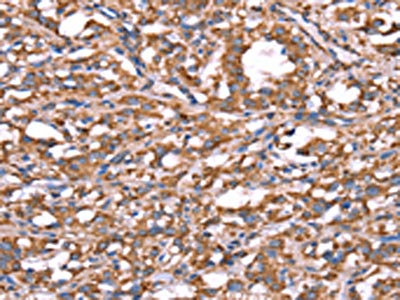
The image on the left is immunohistochemistry of paraffin-embedded Human thyroid cancer tissue using CSB-PA162393(SPAST Antibody) at dilution 1/20, on the right is treated with synthetic peptide. (Original magnification: x200)
SPAST Antibody
CSB-PA162393
ApplicationsELISA, ImmunoHistoChemistry
Product group Antibodies
ReactivityHuman, Mouse, Rat
TargetSPAST
Overview
- SupplierCusabio
- Product NameSPAST Antibody
- Delivery Days Customer20
- ApplicationsELISA, ImmunoHistoChemistry
- CertificationResearch Use Only
- ClonalityPolyclonal
- ConjugateUnconjugated
- Gene ID6683
- Target nameSPAST
- Target descriptionspastin
- Target synonymsADPSP, FSP2, SPG4, spastin, spastic paraplegia 4 (autosomal dominant; spastin), spastic paraplegia 4 protein
- HostRabbit
- IsotypeIgG
- Protein IDQ9UBP0
- Protein NameSpastin
- Scientific DescriptionThis gene encodes a member of the AAA (ATPases associated with a variety of cellular activities) protein family. Members of this protein family share an ATPase domain and have roles in diverse cellular processes including membrane trafficking, intracellular motility, organelle biogenesis, protein folding, and proteolysis. The encoded ATPase may be involved in the assembly or function of nuclear protein complexes. Two transcript variants encoding distinct isoforms have been identified for this gene. Other alternative splice variants have been described but their full length sequences have not been determined. Mutations associated with this gene cause the most frequent form of autosomal dominant spastic paraplegia 4.
- ReactivityHuman, Mouse, Rat
- Storage Instruction-20°C or -80°C
- UNSPSC41116161

